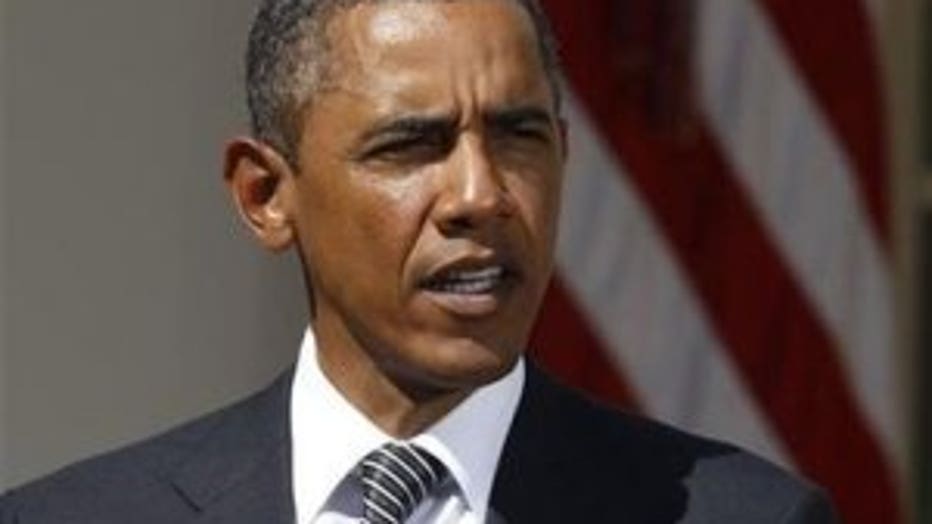CNN: 3 countries offer military assets to U.S. for attack on Syria
(CNN) -- Three countries -- Saudi Arabia, the United Arab Emirates and Turkey -- have offered the United States use of their military assets for action against Syria, U.S. Secretary of State John Kerry told American lawmakers, sources said Monday.

Those were the first three countries to do so, and other countries are expected to as well, Kerry said in a phone call to Democratic lawmakers, according to two people who were on the call.
The prospect of military strikes has resulted in about 100 defections from the Syrian military, he said on the call, according to the sources.
A total of 127 Democrats from the House of Representatives were on the call, a Democratic aide told CNN.
But the tough sell for action was clear in the call. When Gen. Martin Dempsey, chairman of the Joint Chiefs of Staff, said collateral damage from a strike is expected to be low, some lawmakers questioned how officials could know that.
Two senior Arab diplomats said talks with Saudi Arabia and the UAE are preliminary, and no details have been discussed. But two leading Republican senators who met with President Barack Obama on Monday said the administration signaled increased support for Syria's opposition in a bid to shift the balance of power in Syria's 2 1/2-year-old civil war.
"There seems to be emerging from this administration a pretty solid plan to upgrade the opposition," said Sen. Lindsey Graham, R-South Carolina, a member of the Senate Armed Services Committee.
And Sen. John McCain, the ranking Republican on the Senate Armed Services Committee, said he was more supportive of a limited U.S. strike after the meeting, partly because of the prospect of that increased support. But both senators said they needed more detailed assurances that the U.S. strategy would be sufficiently strong and sustainable before they could endorse it to their colleagues.
Administration officials will be conducting classified briefings on Syria for Congress nearly every day this week. Obama will meet Tuesday morning with House Speaker John Boehner and Minority Leader Nancy Pelosi, congressional aides said, and he'd already planned talks with the leaders of the key national security committees in the House and Senate.
One of those, House Armed Services Chairman Buck McKeon, told CNN the administration will have to overcome "a lot of distrust among the American people" about the intelligence that fingers Syria's government in a poison gas attack outside Damascus in late August.
"There will be a real questioning as to the veracity of the evidence and if this really happened or not," McKeon, R-California, said in an interview with CNN's Barbara Starr. "It will be necessary to explain and prove to the American people, and I think the only person who can really do that is the president of the United States."
But McCain said it would be "catastrophic" for Congress to reject Obama's call to authorize U.S. military force, adding it would "undermine the credibility of the United States and the president of the United States."
Syrian President Bashar al-Assad, meanwhile, warned that a regional war could break out if Syria is attacked.
"The Middle East is a powder keg, and the fire is approaching today," he told French newspaper Le Figaro in an interview Monday.
"One must not speak only of the Syrian response, but rather what could be produced after the first strike. Because nobody can know what will happen. Everyone will lose control of the situation when the powder keg explodes. Chaos and extremism will spread. The risk of a regional war exists."
Syria has repeatedly denied being behind an August 21 chemical weapons attack that killed hundreds of people.
While a U.N. probe is under way, U.S. Secretary of State John Kerry said Sunday there's "an overwhelming case" that Syria was behind the attack.
Blood and hair samples obtained from first responders through an "appropriate chain of custody" have "tested positive for signatures of sarin" gas, Kerry said on CNN's "State of the Union" on Sunday.
It's unclear exactly how the United States obtained the material independently of the United Nations.
Al-Assad told Le Figaro, "We have challenged the United States and France to give a single piece of evidence." Obama and French President Francois Hollande, whose government has also called for action against Syria, "have been incapable" of providing it, he insisted.
He also questioned "the logic" of carrying out an attack that injured Syrian soldiers as well.
NATO Secretary-General Anders Fogh Rasmussen said Monday that "many facts in this case point to the regime as responsible for the chemical attacks."
He called for a "firm international response."
"It would send a very, I would say, dangerous signal to dictators all over the world if we stand idly by and don't react," he said.
But NATO itself won't take military action against Syria.
NATO is prepared to protect Turkey, a NATO member, if Syria attacks it, Rasmussen said. The alliance has deployed Patriot missiles to the country, he said. But, he added, "I don't foresee any further NATO role in Turkey. It is for individual nations to decide how to react to what has happened in Syria."

